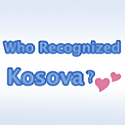There is no way in this world how I can thank enough the people who helped me here in Sudan. Mr. Denis Baillargeon and his team have been wonderful to me during all these days after the accident. They provided food, shelter, protection and emergency assistance in every aspect for me.
Once, during a trip from Macedonia to Bulgaria, an Albanian helped Mr. Baillargeon in a difficult moment. He has never forgotten this, and now he was willing to return the favor to an Albanian.
Yesterday, after the completion of the accident analysis, Mr. Denis authorized and organized the transport, team for loading the aircraft into the transporting truck which they use for carrying their baggers, and has made available all other equipments from the mines. I am very pleased to inform you that the transfer of aircraft from the place of accident is finally completed.
I am attaching pictures of the aircraft transfer process. It has been an event with rather complex logistics, and any small error could damage the aircraft. Ten people participated in this transportation. This process lasted for over seven hours, the distance to the mine is 43 km and we have been forced to move at a very low speed. Loading and unloading of aircraft has been very delicate and difficult. The transportation of the aircraft has been followed by numerous and armed police forces.
I am extremely happy that the aircraft is now safe and protected and it is not in the dessert under the care of police, who had to guard it temperatures up to 47°C.
Today I returned to Port Sudan, where I have extended the visa for five days. I hope that I can extend it for longer until I solve the aircraft issue.
My wish still remains to bring the damaged engine to Kosovo. I remain hopeful that I will achieve this, thanks to your help and support.
With much love,
Your Captain
James Berisha
———————
Shumë të dashur,
Në këtë botë nuk ekziston asnjë mënyrë me të cilën mund t’i falënderoja mjaftueshëm njerëzit që më ndihmuan këtu në Sudan.
Z. Denis Baillargeon dhe grupi i tij kanë qenë të mrekullueshëm me mua gjatë këtyre ditëve pas aksidentit. Ata më siguruan ushqim, strehim, mbrojtje dhe ndihmë të jashtëzakonshme në çdo aspekt.
Njëherë, gjatë një udhëtimi të tij nga Maqedonia për në Bullgari, z. Denisit i kishte ndihmuar një shqiptar në një moment të vështirë. Ai nuk e ka harruar këtë gjë kurrë dhe tani ka pasur kënaqësinë që edhe ai t’ia kthejë këtë nder një shqiptari.
Dje, pasi përfunduan të gjitha analizat e aksidentit, z. Denisi ka autorizuar dhe organizuar transportuesit, ekipin për ngarkimin e aeroplanit në kamion transportues me të cilin ata transportojnë buldozerët e tyre, si dhe ka vënë në dispozicion çdo pajisje tjetër nga miniera e tyre. Jam shumë i kënaqur të ju lajmëroj që më në fund ka përfunduar bartja e aeroplanit nga vendi i aksidentit.
Po ju bashkëngjis fotografitë e procesit të bartjes së aeroplanit. Kjo ka qenë një logjistikë mjaft e ndërlikuar dhe çfarëdo gabimi i vogël mund ta dëmtonte shumë aeroplanin. Në këtë transportim kanë marrë pjesë rreth dhjetë persona. Ky proces ka zgjatur mbi shtatë orë, largësia deri tek miniera është 43 km dhe patjetër kemi qenë të detyruar të lëvizim me një shpejtësi shumë të ngadalshme. Ngarkesa dhe shkarkimi i aeroplanit ka qenë shumë delikat dhe i mundimshëm. Transportimi i aeroplani është përcjellë nga forca të shumta e të armatosura të policisë.
Jam jashtëzakonisht i lumtur që aeroplani tani është në vend të sigurt dhe të mbrojtur dhe nuk është më në shkretëtirë nën përkujdesjen e policisë, të cilët e kanë ruajtur edhe në temperaturat që janë ngritur deri në 47°C .
Sot jam kthyer deri në Port Sudan, ku e kam zgjatur vizën për edhe pesë ditë tjera. Shpresoj që të mund ta zgjas edhe më shumë deri sa të bëhet zgjidhja e çështjes së aeroplanit.
Dëshira ime mbetet që motorin e dëmtuar ta sjell në Kosovë. Mbes më shumë shpresë që do ta arrij këtë, falë ndihmës dhe mbështetjes tuaj.
Me shumë dashuri.
Kapiteni juaj,
James Berisha







































































































































